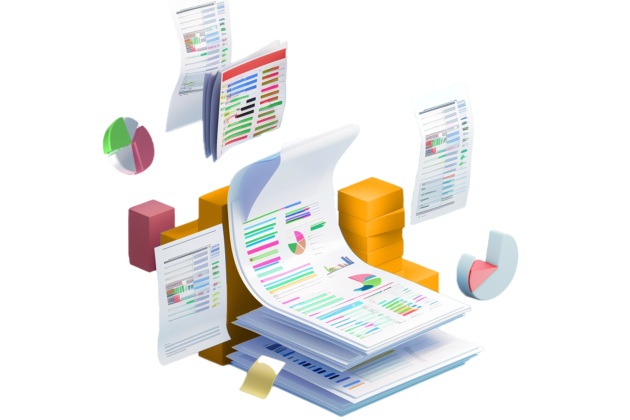- Why Accord
- PricingWe don’t hide behind fancy sales teams before we tell you, our prices.
- Clients
See who we are working with and what they have to say about Accord.- Resources
Five Strategies To Build Supply Chain Resilience
Supply chain resilience is currently an increasing concern for professionals in procurement as supply chains falling through has severely affected some industries, and in a recent survey it found that with 95% of all companies are seeking new ways of engaging and communicating with customers and suppliers as a result of COVID-19.
Such disturbances as the pandemic, need to be handled in the right way, and implementing the correct solutions and tools can support you and your procurement teams to make resilient supply chain decisions.
Organisations will have multiple points of exposure across their supply chain; even large and integrated businesses will have a complex supplier base and lack the tools to have visibility of risk areas a real threat.
Engaging with smart strategies and solutions to build supply chain resilience and looking towards the offering of digital supplier on-boarding systems is a sure-fire way to strengthen weaker spots within your supply chain. You and your procurement team can be more prepared for unexpected risk events, and continue to work collaboratively with your supply chain to respond and recover quickly to potential disruption.
Follow these five strategies to create a positive collaborative work ethic with suppliers, while enabling a more flexible approach to build and improve your supply chain resilience.
1. Get to know your Supplier
It is important that you know and have every piece of data from your supplier to help you understand what risks each supplier brings to your business. Understanding any significant risks or the likelihood of them and how your business can offset them, means you can take proactive steps to mitigate against these.
Getting to know your suppliers by collecting the correct and relevant information and documentation in one central repository against them individually, will allow your team to understand the maturity of your suppliers and how capable they are of managing any threats.
2. Qualify your Supplier
Unfortunately you cannot just assume your supplier has done their own risk analysis, so it’s important if you can work collaboratively with your supply chain and your procurement team to understand whether the supplier is risk aware.
Do they understand the risk in terms of what you’re asking them to deliver? Does their view of risks match yours? And do they have the capability to handle them?
Investing time in your supplier analysis is vital to creating supply chain resilience so having an efficient process in place to qualify your suppliers, will help establish your due diligence to spot any supplier risks from the start. By doing your homework you can approve or go back and question any suppliers in your pre-qualification process.
3. Honesty and visibility for the long term
Overall visibility is not just great for building supply chain resilience, it is a great tool for your procurement team and business. Once collecting all your supply chain data and qualifying your approved suppliers that pass your risk analysis, you will be able to have overall visibility of your supply chain, make informed decisions that will serve you in the long term.
Short term incentives to save money tend to open organisations up to risk so it is important to look at the long term and work with your suppliers with honesty. Supplier portals and supplier onboarding tools ensure you can ask suppliers to be utterly transparent in their bid submissions, so you can review any possible threats and make sure you aren’t in fact, over-paying for hidden risks – providing visibility and honesty in your process to build supply chain resilience translates to a better deal for both parties in the long term.
4. Communicate and collaborate
Tools and solutions that can enable you to collaborate and communicate efficiently with your supplier chain is the most effective way to safeguard against any risks and build your supply chain resilience. As the buyer, you have the opportunity to lead difficult conversations, but you can build mutual trust and confidence while minimising surprises by communicating and offering to be part of the management process.
Collaboration is key – working closely with your suppliers means you can drive resiliency together and gain mutual understanding so both you and the supplier have a shared commitment to have the best outcome.
5. Think strategically, not operationally
Risk is at the centre of every supply chain so when projects go wrong it is vital to capture lessons learned and monitor your response. When things haven’t gone operationally correct with your suppliers, you can continue to create a knowledge base of best practice so your supply chain resilience can evolve and continue to flow.
Learning, adapting and evolving to think more strategically will enable your organisation to build your supply chain resilience further so you can apply learnt lessons to your wider supply chain management strategy to drive the chances of future success.
Conclusion
We understand that supply chain resilience is keeping procurement teams awake at night, but by implementing the correct solutions and strategies around the management of supply chain data and how you communicate and build relationships, you can help move your procurement processes forward to enable you to breathe a little easier when disruption occurs.
Find out more about Accord’s Supplier Relationship Manager Tool: https://www.youtube.com/watch?v=WCHJFCF7M0w
Or get in touch for a quick initial chat or arrange a free, informal, no-obligation tour of Accord over a webinar to see how our contract management systems can help supply chain resilience.
Book a demoMore reasons to use Accord
It’s easy to get started.
Step 1
Book a demo of Accord with the team.
Step 2
We’ll chat through your requirements and see if Accord is right for you.
Step 3
We’ll send you demo access and our onboarding kit to help you decide what you need.
Step 4
You decide if we’re right for you. No pushy sales calls.
Step 5
Like what you see and hear? Let’s get you onboarded with Accord!
- Clients






